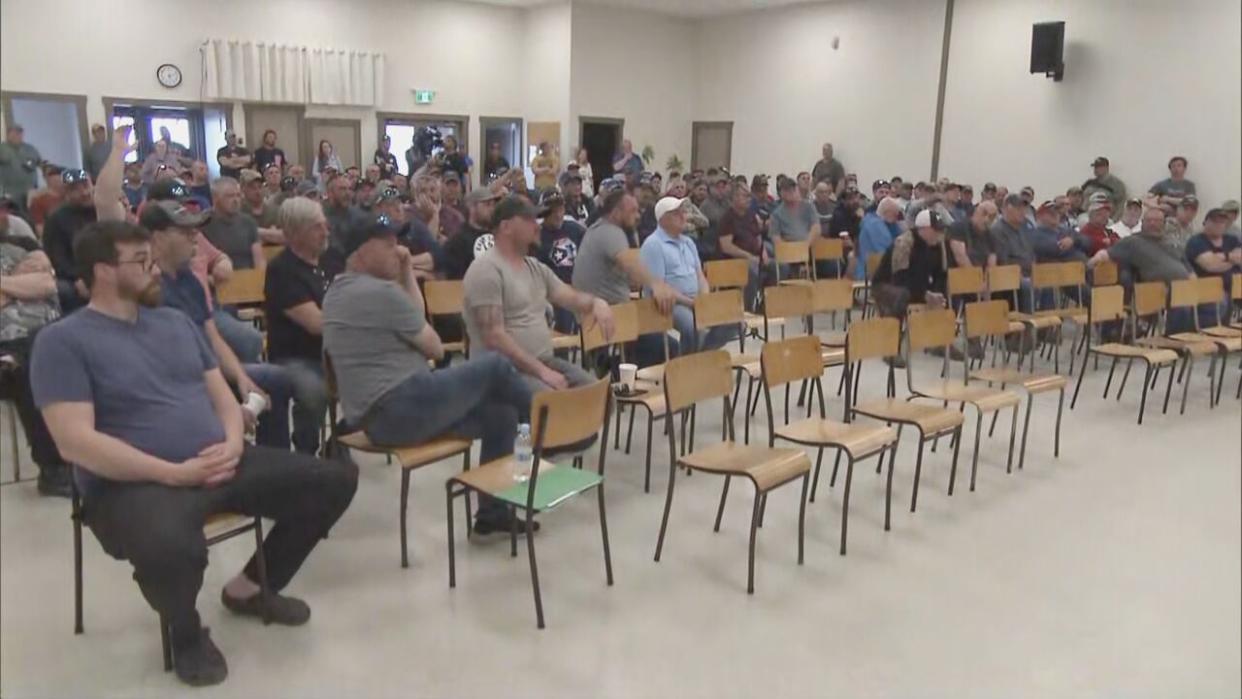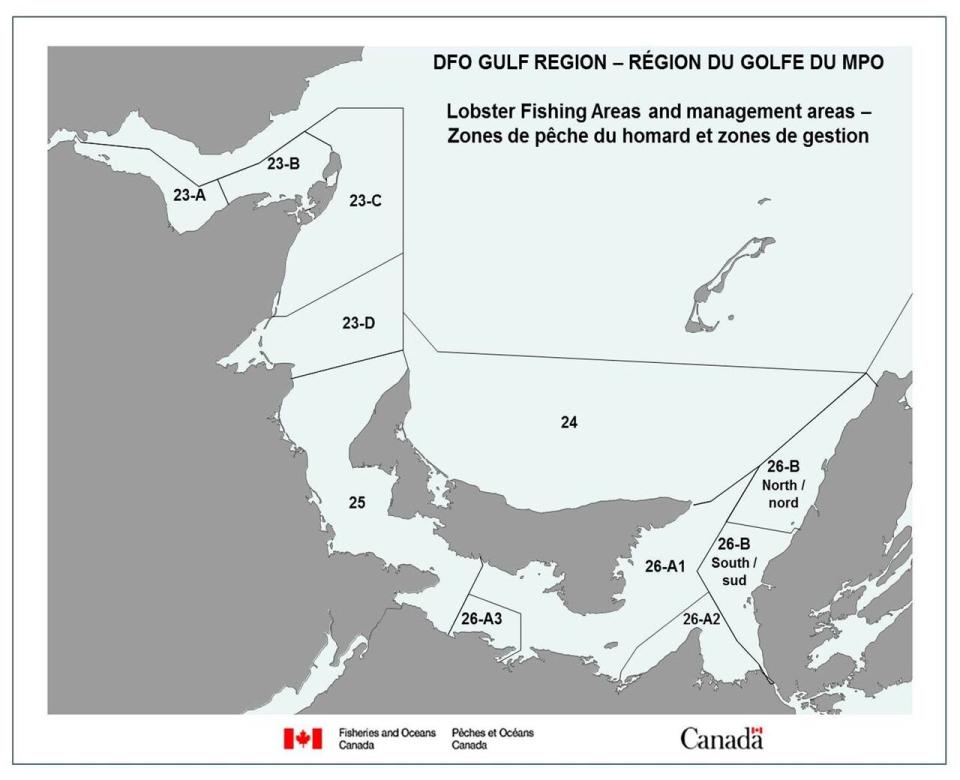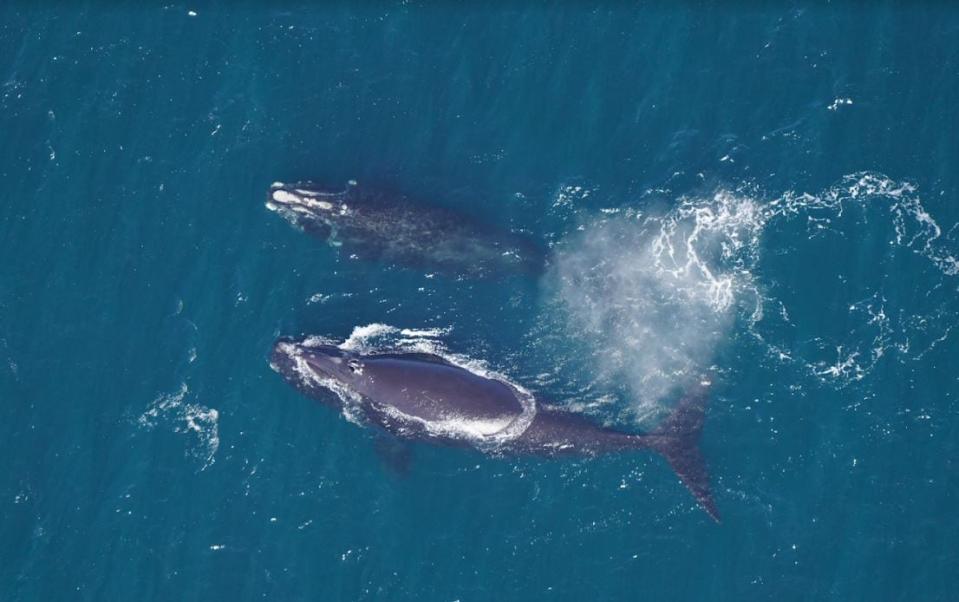'Lobster situation is settled,' MP says after fishermen defy order to remove traps

- Oops!Something went wrong.Please try again later.
A brewing battle between the federal government and lobster fishermen in northern New Brunswick appears to have come to an end.
A federal closure of lobster fishing zones in the Gulf of St. Lawrence off New Brunswick's Acadian Peninsula was being defied by hundreds of fishermen refusing to remove their traps.
But on Thursday afternoon, Serge Cormier, the Liberal MP for Acadie-Bathurst, told CBC News the dispute was over.
"The lobster situation is settled," Cormier said on Facebook. "Thanks to the fishermen's associations who have done an extraordinary job on this issue.

Diane Lebouthillier, the federal Minister of Fisheries and Oceans, said in a statement her meeting with members of the Maritime Fishermen's Union was productive, and that she is convening a meeting of the technical advisory committee on North Atlantic right whales to review existing closure protocols. (Patrick Butler/Radio-Canada)
A news release from the Department of Fisheries and Oceans sent Thursday evening says that lobster boats will be able to fish closer to shore.
"I am pleased to see DFO has adjusted the closure requirements and harvesters can now set their traps up to the 10 fathom shallow water protocol management line for the remainder of the 15-day period," said federal Fisheries and Oceans Minister Diane Lebouthillier, in the release.
The closure of several lobster fishing zones off the Acadian Peninsula, set to go into effect Wednesday, would have fully closed several areas for the rest of the season, while forcing others to restrict fishing to shallower depths only.
But Thursday evening's announcement from DFO means that fishermen will not be fully kept out of the previously closed zones.
Lebouthillier also said in the release her meeting with members of the Maritime Fishermen's Union was productive, and that she is convening a meeting of the technical advisory committee on North Atlantic right whales to review existing closure protocols.
Martin Mallet, the executive director of the Maritime Fishermen's Union, said all along the union wanted the depth of the observed right whale to be used to determine where the fishing ban would be implemented.
"It's been resolved," said Mallet. "It's unfortunate [DFO wouldn't] listen to us earlier. All of this would have been avoided."
Deeper areas of the gulf remain closed to lobster fishing.
Whale sighting closed zones
Several fishing zones in the area were officially shut down early by the Department of Fisheries and Oceans at 5 p.m. Wednesday because of a North Atlantic right whale sighting.
Certain federal restrictions go into effect when there is a danger of whales becoming entangled in gear or being hit by vessels.

Martin Mallet, executive director of the Maritime Fishermen's Union, said all along the union wanted the depth of the observed right whale to be used to determine where the fishing ban would be implemented. (Radio-Canada)
At a meeting in Lamèque at the time of the deadline, about 200 members of the Maritime Fishermen's Union decided not to remove their roughly 60,000 traps in the area. However, the fishermen said they would not be out on the water on Thursday to give the federal department one more chance to negotiate.
In the Gulf of St. Lawrence, when a right whale is detected, an area around it will close for 15 days, but if a right whale is detected in a closed area between days nine and 15, a seasonal closure will be applied.
According to a release from the Department of Fisheries and Oceans on May 17, a North Atlantic right whale was spotted in shallow waters off the northeast coast of New Brunswick, which prompted a temporary closure for lobster fishing area 23-C.
The release said if a right whale was not detected again in the closed area, the area would reopen to fishing on May 31.

A map of the fishing regions in the Gulf of St. Lawrence, provided by Fisheries and Oceans Canada, shows where 23-C, the affected lobster fishing area, is located. (Fisheries and Oceans Canada)
The fishing season in this area began on May 5 and is set to close on July 4.
Certain deeper parts of this area did have an additional right whale detection between days nine and 15, which prompted a seasonal closure by DFO for that region.
Bernard Haché, who has fished from the Sainte-Marie-Saint-Raphaël wharf for 46 years, said in an interview with Radio-Canada that the closure makes no sense.
"We only have 61 days of fishing to make our year and then [Fisheries and Oceans] comes to pull the rug out from under us, that doesn't make any sense at all," Haché said, adding that he will not remove his traps before the end of the season.

A file photo showing a North Atlantic right whale and her calf. The zone closures off the Acadian Peninsula followed a right whale sighting over the weekend. (New England Aquarium)
Eric Mallet, the Liberal MLA for Shippagan-Lamèque-Miscou, called the situation a ticking time bomb.
Cormier, who has called for loosened right whale protection measures to help fishermen, said he feared that tensions could further escalate.
"We experienced events here in 2003 during the crab crisis. No one wants to go through that again," Cormier said in French.
Riots broke out in Shippagan that year over a DFO decision. Four boats, a processing plant and a warehouse were all burned down.
Conservation groups believe there are between 350 and 360 North Atlantic right whales left in the world, including fewer than 70 reproductively active females.
There have been at least four North Atlantic right whale deaths documented by the National Oceanic and Atmospheric Administration, or NOAA, this year — all of them female.

